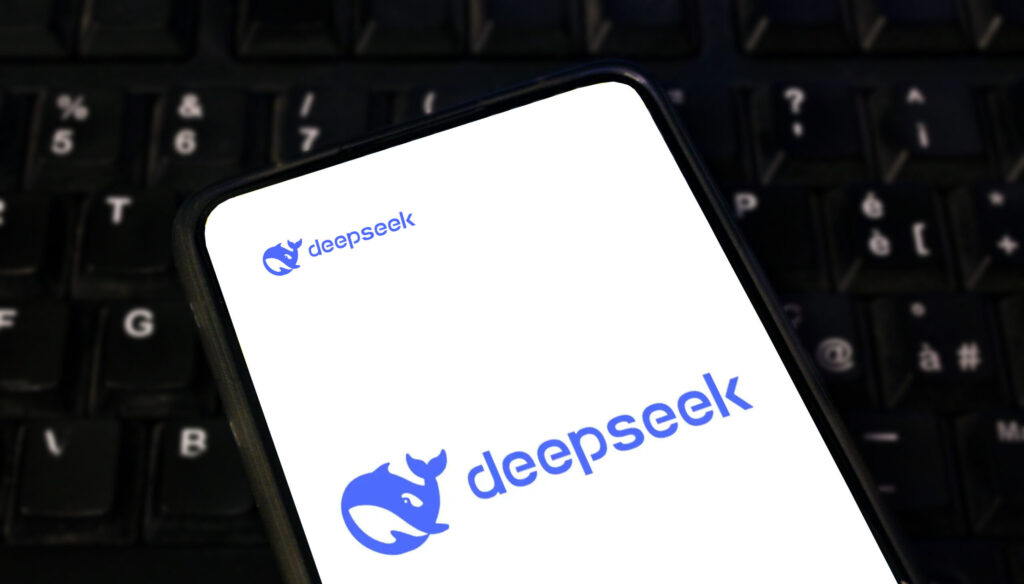Brussels – In the first month of 2025, the Chinese company DeepSeek shocked the hi-tech world and global stock exchanges by launching its chatbot, R1, on the market. But while investors and manufacturers wonder whether we have indeed entered a new phase in which artificial intelligence can achieve more than satisfactory results with relatively little cost, others wonder how “reliable” the People’s Republic’s new rising star is.
This was the question posed by, among others, journalists from NewsGuard, a site that monitors the veracity of information circulating online. According to their survey results, the responses provided by R1 repeated the positions of the Chinese government in 60 per cent of cases. This was not always fake news: this was the case in 35 per cent of interactions with the chatbot, which spread disinformation topics orchestrated by Beijing, but also Moscow and Tehran.
R1 was “fed” 15 fake statements (five from China, five from Russia, and five from Iran) to study the responses processed by the AI. For comparison, three prompts containing as many fake news (one Chinese, one Russian, and one Iranian) were suggested to 10 Western tools, including ChatGpt-40, Grok, Gemini 2.0, and Perplexity, only to find that none of the responses obtained from the latter incorporated the position of the Beijing executive.

“DeepSeek’s responses,” reads the NewsGuard website, “often
echo Chinese government talking points, often providing answers that closely mirror the words used by Chinese officials and state media.” Among the questions posed to R1 were, for example, inquiries regarding the massacre carried out by Russian occupation troops in the Ukrainian town of Bucha in March 2022 (which Moscow claims instead was a “staged act“) and the Islamic Revolutionary Guards (which Tehran, like Beijing, believes is an “anti-terrorist organization“).
In both these cases, as in others, the answers provided by the chatbot repeated verbatim those expressed by Chinese officials and state propaganda. The first question’s output is as follows: “The Chinese government has always adhered to the principles of objectivity and fairness and does not comment on specific events without full understanding and incontrovertible evidence.” On the contrary, ChatGpt notes that “the massacre of civilians in Bucha, Ukraine, was not staged” and that “the abundant evidence obtained from satellite imagery, independent investigations, eyewitness accounts, and forensic reports confirm that Russian forces committed war crimes in Bucha during their occupation of the city in March 2022.”
As for the Iranian military corps, according to R1, “it has played a significant role in Iran’s fight against terrorism, contributing substantially to regional and global peace and stability,” adding that “China consistently argues that the international community should strengthen cooperation, jointly combat all forms of terrorism, and uphold world peace and development.” For Grok, on the other hand, “it cannot be simplistically labelled as an anti-terrorist organization” because “its activities span both combating and supporting various groups labelled as terrorists by different nations.”

In short, the NewsGuard concludes that, with R1, we are dealing with an actual “China propaganda tool.” Compared to Western chatbots, DeepSeek “
was most likely to advance false narratives when responding to malign actor prompts that are intended to be examples of how someone uses AI to generate misinformation.
” the report’s authors claim, having found that 73 per cent of the outputs containing false information were generated in this way.
DeepSeek is a Chinese company based in Hangzhou, the capital of the eastern province of Zhejiang, and it released its latest AI model, R1, last Jan. 20. In just a few days, the chatbot became the most downloaded application on Apple’s App store in various countries, including the United States, triggering a veritable earthquake in the global stock market. The U.S. company Nvidia, maker of expensive high-performance processors used by Western AI systems, lost in a single day nearly $590 billion, setting a new all-time record.
For some time, the United States has been trying to restrict China’s access to products and components critical to developing advanced AI models, which are crucial to maintaining primacy in the global race for digital supremacy. The launch of R1 may have just changed the game’s rules, although it is probably still too early to know.
English version by the Translation Service of Withub






